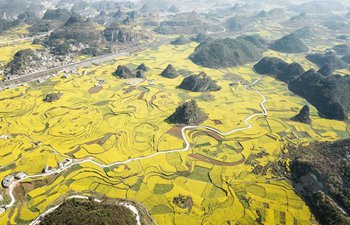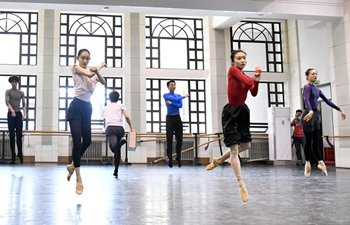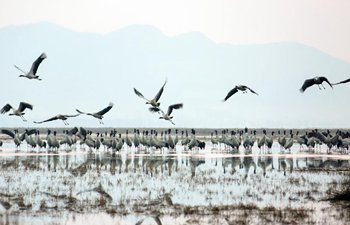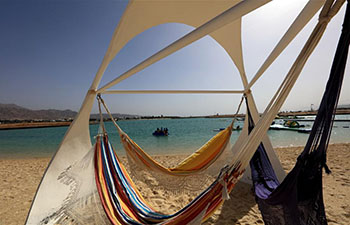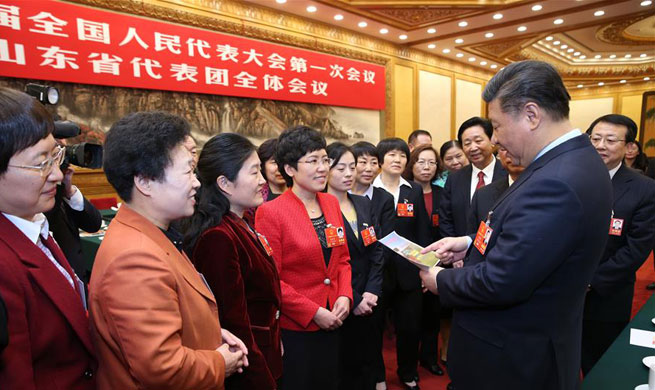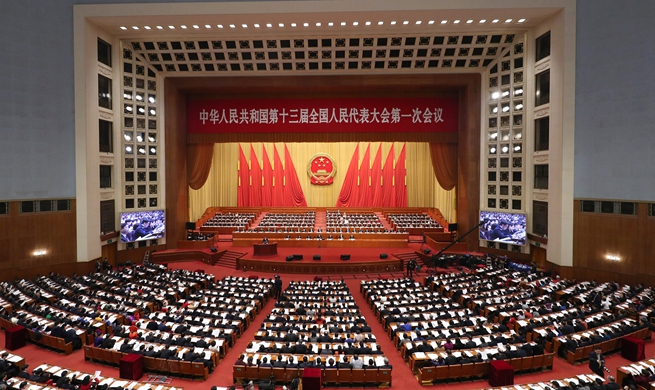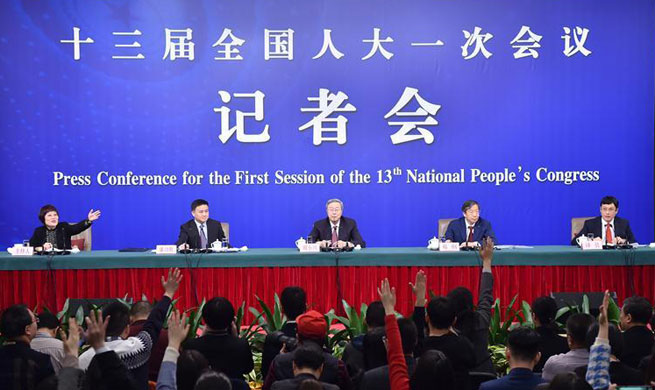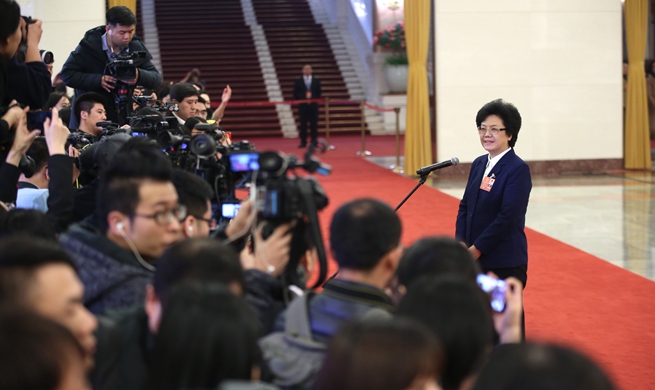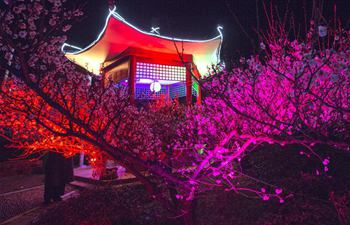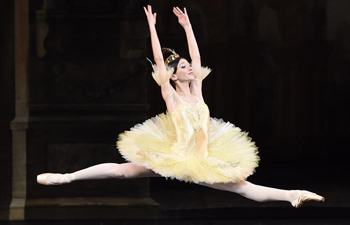BEIJING, March 9 (Xinhua) -- U.S. President Donald Trump has agreed to meet Kim Jong Un, top leader of the Democratic People's Republic of Korea (DPRK) by May at the invitation of Kim, said a South Korean envoy during a trip to Washington on Thursday.
If realized, the proposed meeting will be the first in history held between incumbent leaders of both sides.
The move, deemed by some observers as a sign of a possible thaw in the two countries' relations, came after the just-concluded South Korea-hosted Winter Olympics, which showed signs that the relations between South Korea and the DPRK are improving.
The U.S.-DPRK ties have experienced ups and downs in history. In the post-Cold War era, the following events marked key moments concerning the occasional thawing of the two countries's relations and of exchanges involving celebrities.
In June 1994, amid escalating tensions between the two countries as the DPRK announced it would withdraw from the 1968 Nuclear Non-Proliferation Treaty, former U.S. President Jimmy Carter visited Pyongyang for a meeting with Kim Il Sung, the DPRK's top leader at that time. The meeting was aimed at paving the way for a return to negotiations between the DPRK and the administration of Bill Clinton, who was then the U.S. president, over the DPRK's nuclear weapons. Talks continued even after Kim passed away in July.
On Oct. 21, 1994, the Clinton administration and the DPRK signed an agreement framework to denuclearize the Korean Peninsula and normalize bilateral relations step by step after some 40 years of hostility, although the deal broke down in 2002 following increasing disagreement between both sides on the implementation of the pact.
In May 1999, former U.S. Defense Secretary William Perry visited Pyongyang as a special envoy of Clinton, on a diplomatic mission to persuade the DPRK to abandon its long-range missile program. Pyongyang agreed in new talks several months later to a moratorium on its missile tests in exchange for a lifting of the U.S. economic embargo.
In June 2000, the first inter-Korean summit was held in Pyongyang between then South Korean President Kim Dae-jung and late DPRK leader Kim Jong Il, father of the current leader Kim Jong Un, with an agreement signed to enhance ties.
In the following October, a high-ranking DPRK military official, Jo Myong Rok, travelled to Washington as Kim Jong Il's envoy and met with Clinton, pledging Pyongyang's will to improve relations.
Two weeks after Jo's visit, then Secretary of State Madeleine Albright met with Kim Jong Il during a two-day visit in Pyongyang aimed at easing tensions.
On Aug. 4, 2009, Clinton made a private trip to the DPRK for a talk with Kim Jong Il, and the DPRK leader agreed to pardon two imprisoned U.S. journalists in the country, Laura Ling and Euna Lee.
In January 2014, retired U.S. basketball player Dennis Rodman and a group of former National Basketball Association players arrived in the DPRK for a game celebrating Kim Jong Un's birthday. Rodman, Kim's friend who has visited the country multiple times, has said he is seeking to mend relations between the United States and the DPRK.




